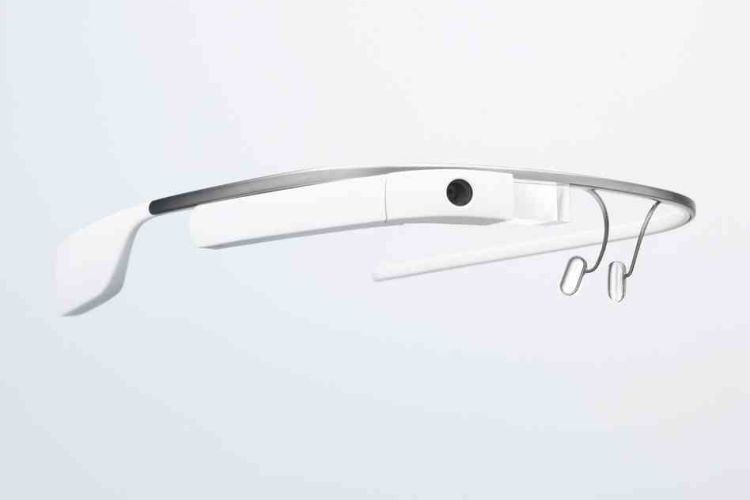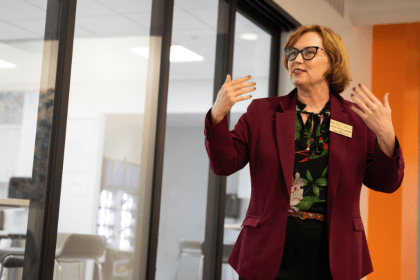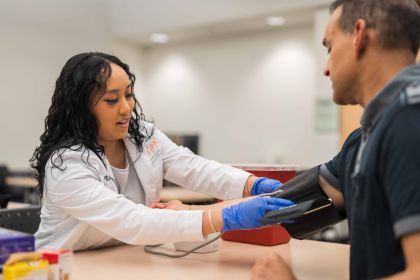Breadcrumb
Pacific physical therapy professors receive Education Influencer Award

Pacific physical therapy professors David Gillette and Preeti Deshpande Oza utilized Google Glass in their classes
University of the Pacific physical therapy professors David Gillette and Preeti Deshpande Oza were awarded the Education Influencer Award from the Physical Therapy Learning Institute (PTLI) for their platform presentation on the use of Google Glass for clinical behaviors in the classroom.
"The PTLI’s Education Influencer Award is an honor and I feel grateful," said Oza. "I look forward to further developing this educational method of teaching clinical behaviors in the classroom with this innovative tool and collaborating with other programs in health sciences."
Gillette and Oza were recognized for their presentation at the Virtual Education Leadership Conference. The Influencer Award is given to the presentation that has the potential to have a positive influence toward excellence in physical therapy education and drive innovation in physical therapy education, research and practice.
In their presentation, Gillette and Oza shared their experiences from fall 2019 when they had community participants wear Google Glass, an optical head-mounted display designed in the shape of a pair of eyeglasses, which displays information in a smartphone-like, hands-free format. Participants recorded physical therapy student interactions with the glasses so students could later view the video for reflection. Through reviewing their interactions in the videos, completely different areas of professional behaviors were revealed to students, which ultimately helped them grow in their skills.
"Google Glass provided students a different perspective for feedback," explained Gillette. "Typically, it is either a third person (instructor or peer) or second person (participant or patient) who provides feedback verbally or in writing to students afterward. This experience gave our students the first person perspective through the participant’s eyes."
Gillette and Oza were also able to utilize the Google Glass for extra educational opportunities and reflection-based learning during 2020 despite the COVID-19 pandemic, when several students had difficulty in clinical internships. To support these students, they used Google Glass to help improve patient interaction and clinical decision-making skills.
"The best part was that we did not have to go to the clinical setting, but simulated patient interactions in the classroom and used Google Glass to help identify areas for improvement," explained Oza.
The physical therapy department, along with the athletic training program, recently received a technology grant to purchase five pairs of Google Glass, which they plan to use to support Pacific students through the practice of difficult conversations in the healthcare setting, record demonstrations, lectures and labs from the instructor’s view and simulate courses that feature experiences with patients for professional behaviors or clinical skills.
"We will definitely be using Google Glass to help develop students’ clinical behaviors and skills," said Gillette. "We also plan to develop some interprofessional educational opportunities with other healthcare programs in the School of Health Sciences."





